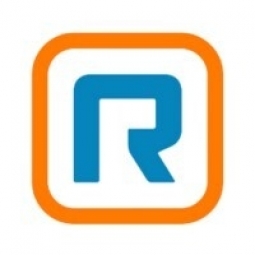Technology Category
- Infrastructure as a Service (IaaS) - Backup & Recovery
- Robots - Wheeled Robots
Applicable Industries
- Consumer Goods
- Retail
Applicable Functions
- Maintenance
Use Cases
- Retail Store Automation
- Theft Detection
Services
- Cloud Planning, Design & Implementation Services
- System Integration
About The Customer
Emco Wheaton Retail Corporation is a company that designs, engineers, and markets equipment for vapor recovery, spill containment, overfill prevention, and remediation. The company has been in operation for over 100 years, pioneering innovative designs for service stations and the vapor recovery nozzle. Emco Wheaton Retail Corporation is headquartered in Wilson, North Carolina, and has a workforce of 50 employees. The company's management frequently travels to China for business, making it crucial for them to have a reliable and efficient communication system that can be accessed from anywhere.
The Challenge
Emco Wheaton Retail Corporation, a company that designs, engineers, and markets equipment for vapor recovery, spill containment, overfill prevention, and remediation, was facing challenges with its outdated Nortel PBX system. The system was becoming increasingly difficult to manage due to its obsolescence and the scarcity of parts for maintenance. Any changes or maintenance required the intervention of outside technicians, which was not only inconvenient but also costly. The company needed a more efficient and manageable system that would not become obsolete. The challenge was further compounded by the fact that the company only had one IT staff member, making it crucial to find a solution that could be easily managed internally.
The Solution
After careful research, Keith Rogers, the IT Manager, decided to switch to RingCentral, a cloud-based business phone system. This system was chosen for its ease of management and the fact that it could be maintained internally, even when the IT staff was not in the office. The transition to RingCentral provided Emco Wheaton Retail’s staff with increased flexibility in communications. The company's President, plant managers, Quality Control Manager, and many other employees started using RingCentral’s softphone and mobile app while working remotely or travelling for business. The new system also allowed employees to forward calls to their cell phones from a desk phone, reducing the number of missed calls. Additionally, RingCentral offered a variety of features that eliminated the need for third-party services, such as international calling services and faxing, resulting in significant cost savings and fewer complications with billing.
Operational Impact
Quantitative Benefit

Case Study missing?
Start adding your own!
Register with your work email and create a new case study profile for your business.
Related Case Studies.
.png)
Case Study
Improving Vending Machine Profitability with the Internet of Things (IoT)
The vending industry is undergoing a sea change, taking advantage of new technologies to go beyond just delivering snacks to creating a new retail location. Intelligent vending machines can be found in many public locations as well as company facilities, selling different types of goods and services, including even computer accessories, gold bars, tickets, and office supplies. With increasing sophistication, they may also provide time- and location-based data pertaining to sales, inventory, and customer preferences. But at the end of the day, vending machine operators know greater profitability is driven by higher sales and lower operating costs.

Case Study
Improving Production Line Efficiency with Ethernet Micro RTU Controller
Moxa was asked to provide a connectivity solution for one of the world's leading cosmetics companies. This multinational corporation, with retail presence in 130 countries, 23 global braches, and over 66,000 employees, sought to improve the efficiency of their production process by migrating from manual monitoring to an automatic productivity monitoring system. The production line was being monitored by ABB Real-TPI, a factory information system that offers data collection and analysis to improve plant efficiency. Due to software limitations, the customer needed an OPC server and a corresponding I/O solution to collect data from additional sensor devices for the Real-TPI system. The goal is to enable the factory information system to more thoroughly collect data from every corner of the production line. This will improve its ability to measure Overall Equipment Effectiveness (OEE) and translate into increased production efficiencies. System Requirements • Instant status updates while still consuming minimal bandwidth to relieve strain on limited factory networks • Interoperable with ABB Real-TPI • Small form factor appropriate for deployment where space is scarce • Remote software management and configuration to simplify operations

Case Study
Digital Retail Security Solutions
Sennco wanted to help its retail customers increase sales and profits by developing an innovative alarm system as opposed to conventional connected alarms that are permanently tethered to display products. These traditional security systems were cumbersome and intrusive to the customer shopping experience. Additionally, they provided no useful data or analytics.

Case Study
How Sirqul’s IoT Platform is Crafting Carrefour’s New In-Store Experiences
Carrefour Taiwan’s goal is to be completely digital by end of 2018. Out-dated manual methods for analysis and assumptions limited Carrefour’s ability to change the customer experience and were void of real-time decision-making capabilities. Rather than relying solely on sales data, assumptions, and disparate systems, Carrefour Taiwan’s CEO led an initiative to find a connected IoT solution that could give the team the ability to make real-time changes and more informed decisions. Prior to implementing, Carrefour struggled to address their conversion rates and did not have the proper insights into the customer decision-making process nor how to make an immediate impact without losing customer confidence.









